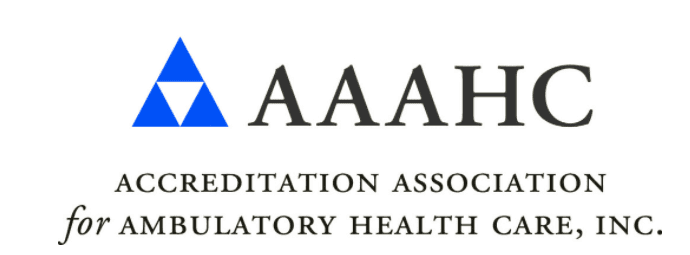Gastric Sleeve Los Angeles, CA


Gastric sleeve is the most common form of bariatric (weight loss) surgery. The procedure is performed worldwide and is also called sleeve gastrectomy, vertical sleeve gastrectomy (VSG), or laparoscopic sleeve gastrectomy Los Angeles CA.
The gastric sleeve surgery makes it possible for your body to shed up to 60% to 80% of your excess weight within the first two years.

What is a Gastric Sleeve?
Gastric sleeve surgery is designed to restrict your food intake, which in turn leads to rapid weight loss. Patients who undergo this safe bariatric surgery and are 100 pounds overweight can easily lose 50 to 80 pounds once the full effects of the VSG sleeve are achieved.
If you find that you have more belly fat than you would prefer and have tried everything to lose weight, the low cost gastric sleeve may be a safe and viable solution.
How Safe is the Vertical Sleeve Gastrectomy (VSG) Procedure?
The vertical sleeve gastrectomy (VSG) surgery is so safe that the former and first female President of the American Society for Metabolic and Bariatric Surgery was quoted as saying, “The gastric sleeve (sleeve gastrectomy) is a safe and effective weight loss procedure that can help patients who suffer from morbid obesity. The bariatric surgery sleeve procedure should be considered a primary procedure for long-term weight loss and the resolution of obesity-related diseases, such as type 2 diabetes. ”
How Does the Gastric Sleeve Help You Lose Weight?
The VSG surgery process involves the removal of around 80% of your stomach. The remaining portion will be converted into a sleeve, which is where food will traverse on its way to your intestines. The sleeve is around the size of a banana, which is why you will also sometimes hear people call it “banana surgery for weight loss” or “banana sleeve stomach surgery”.
Unlike other bariatric surgeries, such as gastric band or gastric bypass, the anatomy is minimally modified and the flow of food is not interrupted. Instead, the surgery aims to minimize the excess stomach that is often used to store large portions of food, which prevents overeating.
With a small amount of the stomach removed, the remaining tissue will appear like a banana. The food you eat will empty into the bottom part of the banana-shaped stomach and into the intestines the same way it did before surgery. Sleeve gastrectomy surgery does not affect or alter the small intestine at all.
By eliminating the excess stomach, the amount of food you can eat is heavily restricted. This operation will define your meal portions by the size of your sleeve. Furthermore, your hunger is drastically reduced through neurohormonal pathways that impose a strong feeling of satiety.
After the gastric sleeve process has been completed, you will find yourself eating less, but you won’t feel deprived. You will feel “full” faster, leading to rapid and comfortable weight loss.
Can Gastric Sleeve Surgery Help You Lose Weight Fast?
Since your stomach is now restricted, which has the effect of lowering your daily caloric intake, and with a fairly strong decrease in appetite, you can expect to lose weight quickly.
In fact, gastric sleeve Los Angeles patients tend to lose up to 60-80% of their extra weight over 12 to 18 months. You may have seen gastric sleeve patients before and after images like the one above.
That means that, for someone who is 100 pounds overweight, you can expect to lose around 60-80 pounds over the next year. You can potentially lose even more body weight by exercising and eating healthily.
Who is a Good Candidate for Gastric Sleeve Los Angeles, CA?


Aside from Healthy Weight Loss, What Are Some Other Benefits of a Gastric Sleeve Los Angeles, CA?
A gastric sleeve can help with a variety of medical conditions that often go hand-in-hand with severe obesity. In medical terms, these related diseases are called co-morbid conditions and can include the following:
- Fatty liver disease
- Hypertension
- Gastroesophageal reflux disease
- Heart disease
- High cholesterol
- High blood pressure (hypertension)
- Obstructive sleep apnea
- Type 2 diabetes
- Joint pain
- Stroke
- Infertility
In addition to all these ailments, obesity can make illnesses like COVID-19 more severe and can lead to an early death.
The good news is that the sleeve gastrectomy procedure can cause the remission or improvement of these obesity-related health conditions.
What’s more, fewer coexisting illnesses will reduce your lifetime medical costs, saving you loads of money over time. You won’t have to take as many prescriptions or deal with all the side effects those medicines typically cause.
In short, a gastric sleeve can help you live a healthier and longer life without obesity slowing you down.
Yes, this single surgery is that powerful.
Gastric Sleeve Before And After Results Los Angeles, CA


Dr. Moein uses the gastric sleeve to treat severe obesity Los Angeles. Dr. Moein may recommend the surgery if you have tried other weight loss methods without long-term success. Gastric sleeve surgery has become the number one best treatment for the majority of obese patients.
To be a good candidate, you would need to receive an obesity diagnosis from your primary doctor. The term “obesity” is a medical diagnosis that is given to a person who exhibits a high body mass index.
BMI is a number that correlates with the amount of body weight a person is carrying. The gastric sleeve surgical procedure is typically reserved for those with a BMI of 40 or higher. That number signifies that the patient is carrying around 100 pounds over their ideal weight for an average-height female. To put this into perspective, if you are 5 foot 3 inches tall and weigh 225 pounds, then you are carrying 100 pounds of extra weight.
BMI Index
Between the BMI of 35 and 40, Insurance coverage criteria typically recommends the gastric sleeve procedure only if you suffer from one or more obesity-related medical disorders like sleep apnea, heart disease, high blood pressure, or type 2 diabetes.
Between the BMI of 30 to 35 the procedure is not covered by any insurance and is typically viewed as a cosmetic procedure. In this weight category the patient is often dealing with 40-60 pounds of excess weight. There is certainly significant improvement to health and quality of life related issues, but, it is with great caution that patients are considered for a weight loss sleeve procedure with lower BMIs.
The American Society of Metabolic and Bariatric Surgery has announced new guidelines for the performance of Sleeve Gastrectomy in lower BMI patients, in support of weight loss surgery in this category of obesity.
Dr. Moein may also recommend the gastric sleeve.
BMI
What are the Benefits of a Gastric Sleeve Surgery Los Angeles, CA?
Patients can not only use the sleeve for weight loss, but they can go on to enjoy a host of other benefits as well. Here are five to keep in mind.
To get an idea, watch Danielle’s Gastric Sleeve Story.
5 Reasons Sleeve Gastrectomy is a Preferred Weight Loss Surgery Option
1- Improved Quality of Life
With your new lifestyle habits in place and with the weight rapidly dropping off, you will begin to feel more energized and prepared to get the most out of life.
2- Rapid Weight Loss
If you have tried everything to lose weight, including diet and exercise, then a gastric sleeve can give you the boost you need. The surgery makes it possible to lose up to 80% of your excess weight within a single year of surgery.
3- Helps with Obesity-Related Health Issues
If you are experiencing fatty liver disease, joint pain, hypertension, or other health problems related to your excess weight, a gastric sleeve in Los Angeles CA can improve them or put them into remission entirely.
4- You Will Eat Less
The primary effect of gastric sleeve surgery is to force your body to consume fewer calories. With most of your stomach safely removed, you will find yourself eating less. You will feel less hungry and, when you do eat, you’ll feel more satiated quickly.
5- Hunger Reduction
Many patients find it hard to eat a healthy diet because they are always hungry. With the gastric sleeve, hormonal changes occur as a direct effect of the surgery. These hormones regulate hunger, which means they will significantly reduce your hunger sensations, making it much easier to adopt your new lifestyle habits.
How is Gastric Sleeve Stomach Surgery Performed?
Your sleeve gastrectomy surgeon will use general anesthesia for the laparoscopic sleeve gastrectomy, which means that you will be asleep for the duration of the VSG procedure.
During the surgery, which lasts about an hour, your surgeon will place a few small incisions in your belly. These incision points will be used to insert the tools necessary for the gastric sleeve surgery.
For instance, a laparoscope will be inserted through one tiny cut, which is an instrument with a camera that sends images to a monitor. Other medical devices may then be inserted through additional cuts as needed.
This laparoscopic sleeve gastrectomy procedure is minimally invasive thanks to this amazing technology and comes with minimal operative risks.
Here is what goes on inside your abdomen.
A laparoscopic stapler will be used to divide the stomach. Three-quarters of the stomach will then be removed, leaving behind a sleeve pouch that is narrow and shaped like a banana.
The portion of the stomach that was removed is taken out of the abdomen through one of the incisions. Your surgeon will then test for leaks in the sleeve using a dye study or upper endoscopy.
How Should You Prepare for Gastric Sleeve Surgery Los Angeles, CA?
Before undergoing a gastric sleeve, you will have already been evaluated by Dr. Moein, which includes a full assessment of your health, diet, and exercise background. The doctor wants to ensure that you have indeed tried everything to facilitate weight management before taking bariatric surgery into consideration.
Dr. Moein will only recommend a gastric sleeve if it makes sense for you personally, given your body type, weight loss struggles, and goals.
Before gastric sleeve surgery, Dr. Moein will ensure that you are motivated to adopt the lifelong habits necessary to enjoy the most long-term health effects. Examples include eating healthy meals and joining a gym or at least getting regular exercise.
These types of lifelong changes to diet and exercise are necessary if you want the gastric sleeve to be effective.
Dr. Moein will also enroll you in a bariatric surgery education program, which covers surgery preparation and the lifestyle habits you should adopt post-surgery to experience the most success. To help you adopt the best habits, the program contains a nutritional counseling course.
Recommendations
In most cases, Dr. Moein will recommend a psychological evaluation and blood tests, as well as imaging studies of your stomach, to ensure that you are ready for surgery and so that the surgery has the best chances of success.
If you are a smoker, Dr. Moein will recommend that you stop several months prior to surgery. In some cases, the doctor may ask that you lose some weight before surgery. Doing so will make your liver smaller and the procedure much safer.
You will also need to stop taking ibuprofen, aspirin, and other blood-thinning medicines in the days leading up to your surgery. And, as with most surgeries, you should refrain from eating or drinking anything the night before.
Last but not least, the staff at Healthy Life Bariatrics will enroll you in our online nutritional and exercise program. This helpful program comes with a handy app so you can manage your lifestyle choices easily by way of your smartphone.
What You Need to Know About: What Causes a Big Stomach in Females?


What Should You Expect During Gastric Sleeve Recovery Process?
You can expect to go home the day after surgery. In some cases, your surgeon will recommend that you remain in the hospital for two or three days.
The effects of the procedure are permanent. Dr. Moein will guide you on how to treat your new constricted stomach and how to navigate the positive changes to your lifestyle moving forward. His goal is to help you avoid serious complications and enjoy the most lifelong success.
Ask About Our “Fast Track” Program?
Dr. Moein and his surgical care team have also designed a Healthy Life Bariatrics “Fast Track” program for folks that are healthier and live far away. It will allow you to undergo surgery with a short period of education and testing. Most patients in this program will have their surgery done in a surgery center and go home the same day.
Dr. Moein will usually recommend regular blood tests every few months in the year following surgery. This ensures that you don’t develop low blood iron (anemia), low vitamin D levels, low calcium, or high blood glucose. Your PCP can monitor these parameters but the chances of you developing a major deficiency with the gastric sleeve are low because the operation does not significantly impact absorption.
If you have heartburn, Dr. Moein may recommend medicine to reduce stomach acid.
While significant weight loss can be rapid, it is possible to regain some of the weight you lost. To avoid weight gain, make sure you follow Dr. Moein’s dietary guidelines and exercise suggestions. Healthy habit-forming won’t be easy but Dr. Moein can give you the tools you need.
After the surgery and over time, the gastric sleeve can widen, allowing you to eat a bit more. Keep in mind that overeating can cause you to regain some of the weight you lost. Joining a weight loss surgery support group can help you stick to your new lifestyle habits and weight loss goals.
For Best Gastric Sleeve Results, Adopt New Eating Habits
As part of your new lifestyle education, Dr. Moein will cover diet and how to eat with your new gastric sleeve in place. You will get the most success with gastric sleeve surgery in Los Angeles, CA if you adopt a healthier lifestyle.
The day after surgery, you will be instructed to drink clear liquids only.
By the second week, you will have graduated to eating pureed foods and drinking protein shakes, whereby you will continue this dietary routine for about four weeks. This liquid diet is designed to get your stomach used to the alterations made during surgery.
Even when you start eating regular foods again, you will have to alter the way you consume food forever. After the first month, you will switch to eating solid (softer) foods. For the best results, make sure you eat slowly and chew your food thoroughly, and never drink while you eat. Doing so can cause your stomach to overfill.
When drinking liquids, wait for a half-hour after finishing a meal.
Dr. Moein also recommends that you refrain from consuming calorie-laden sodas and snacks.
He will encourage you to take a daily multivitamin and additional dietary supplements to aid with nutrient absorption.
In two or three months, you will have moved on to regular meals. Your eating plan should focus on complex carbohydrates, lean protein, and lots of healthy veggies. You will very quickly notice that you can no longer consume large portions of food like you once could. This is a good thing, as your newly shaped stomach will help you drop to your expected weight.
If you continue to eat healthily and get regular exercise, the gastric sleeve can help the excess weight melt away, giving you the slimmer body you always wanted.
Are There Any Drawbacks to Surgery?
As with any surgery, there are risks associated with gastric sleeve surgery, such as infection, bleeding, and leakage at the staple line, though these are rare. Another rare condition that can develop includes a blood clot that forms in your legs.
General anesthesia can cause breathing problems or other reactions, but only in some patients.
Tell Dr. Moein if you experience nausea, constipation, heartburn, or vomiting, as these side effects can sometimes occur as a result of surgery.
You are also likely to notice that some foods may no longer agree with you. Some patients develop nutrition problems after surgery, which is why Dr. Moein recommends you consume vitamins and mineral supplementation in addition to regular food.
For all the side effects and unintended consequences of surgery, Dr. Moein will be sure to advise you on exactly what you need to know. His advice can be used to heal correctly after the procedure and experience the highest levels of (safe) weight loss for life!
How Much Does Gastric Sleeve Surgery Cost Los Angeles?
The cost of a sleeve gastrectomy varies depending on your location. Bariatric surgery in California tends to cost less than the national average. As far as weight loss surgeries go, sleeve surgery is substantially more affordable than others like gastric bypass.
The average cost of the surgery is $23,000, The gastric sleeve cost Los Angeles CA can vary depending on the time it takes to do the surgery, the risk of surgery, and your BMI. Currently, the listed price is $18,500.00 for a cash-paid sleeve with no financing. Ask weight loss surgeon Dr. Moein to give you a customized and specific quote to help you achieve your weight loss surgery goals. We do our best to provide you with the most competitive pricing without surprises.
Does the Insurance Cover the Procedure?
Some insurance policies cover bariatric surgery if you meet specific criteria. You have a higher likelihood of having your surgery covered by your insurance provider if you have a BMI over 40 or your BMI is between 35 and 40 with obesity-related health problems.
The insurance criteria are often very restrictive and will result in months of delay to your care. In addition, your copay and out-of-pocket expenses may exceed the cost of your surgery. We will provide you with insurance verification and provide you with the best resources to achieve your surgery in Los Angeles CA.
Call Now to consult with the best gastric sleeve surgeon Los Angeles
While a gastric sleeve is not intended as a quick or permanent fix for obesity, the procedure can help you drop the excess pounds that don’t respond readily to diet and exercise.
Compared to other bariatric procedures, the gastric sleeve is more conservative and shorter than a traditional gastric bypass.
Bariatric surgeon Dr. Moein recommends the gastric sleeve Los Angeles, CA for all patients in the greater Los Angeles, Glendale, and Encino CA areas with a BMI of 30 to 60 or higher. The surgery can help you reduce your weight and resolve accompanying health problems caused by morbid obesity.
Healthy Life Bariatrics has a surgery date that is perfect for you. Contact our surgical care team to learn more about the health benefits of the gastric sleeve and to schedule an appointment with Weight loss surgeon Dr. Moein in Los Angeles. Call (310) 861-4093.


Gastric Sleeve Testimonials Los Angeles, CA


Total Reviews: 222
ETHEL LEDFORD
Kind, compassionate, and amazing are just a few words used to describe Dr. Moein and his staff. From the time you walk through the doors until you leave. I could not be more pleased with my results and the care that I received. If you’re looking for a caring staff and a doctor that is amazing at his craft, this is where you should go.

Total Reviews: 21
My experience with Dr. Moein is amazing!
My experience with Dr Moein is amazing! He is very knowlegable, respectful, and most important made me feel comfortable and safe. I had other consultation with other surgeons but I knew I chose the right doctor for my procedure. Thank you Dr Moein for everything.

Total Reviews: 34
ZOHRE T.
Dr Moein is very kind and personable, very attentive and patient. Always answered my emails personally and always found time to talk to me on the phone when I needed – before and after the surgery.

Total "Not Recommended"
Reviews: 64
KRISTINE K
I have been going to the Moein Surgical Arts countless times, and they never disappoint. Dr. Moein is professional, knowledgeable, passionate, and detail-oriented. I cannot say enough about him and his staff. I'm so happy to have found them in Los Angeles. It's always a pleasant experience and fantastic results when I go. Go here, and you won't be disappointed.





